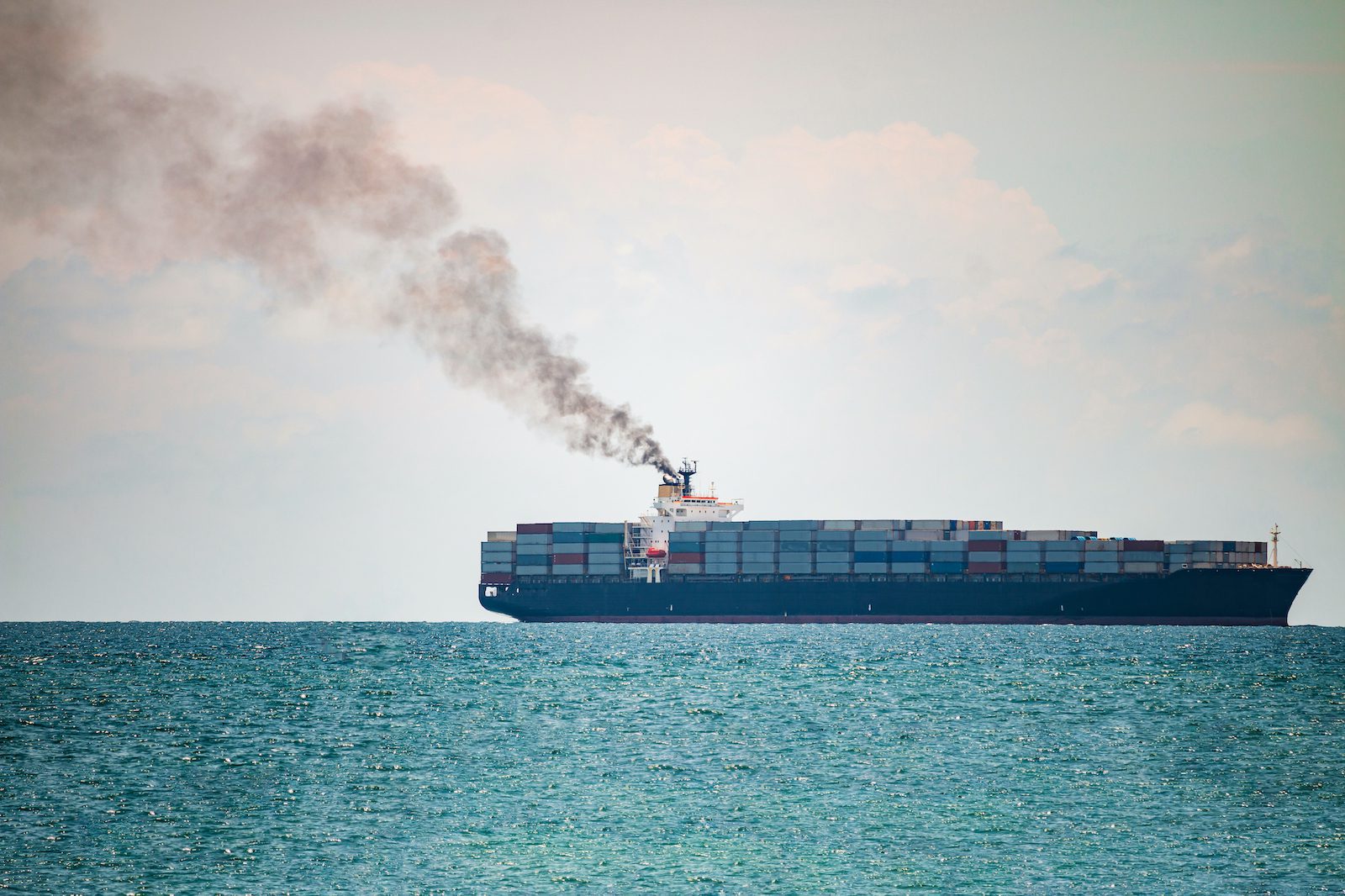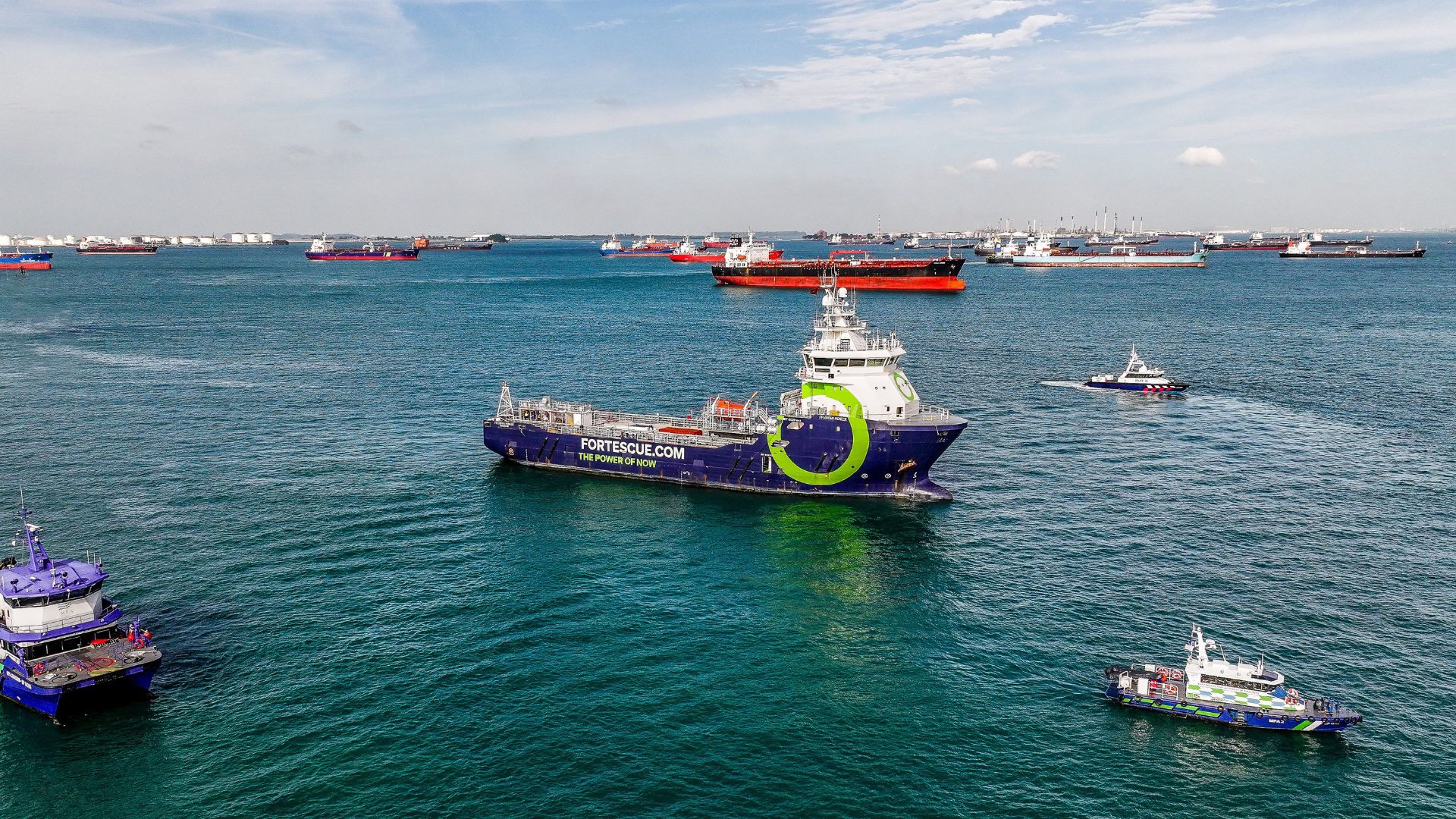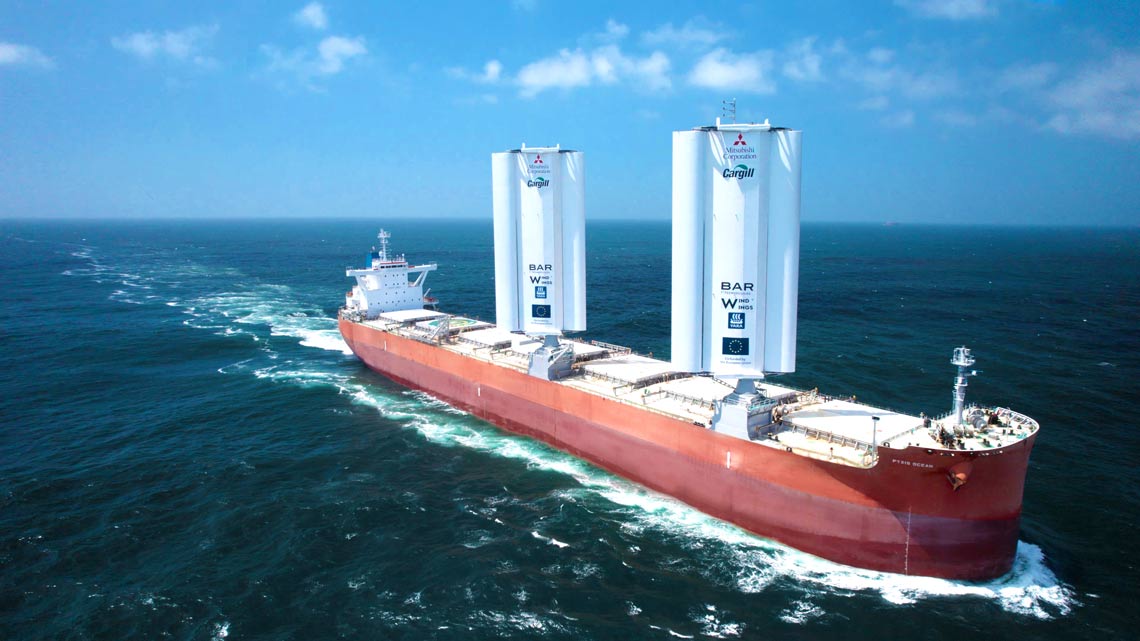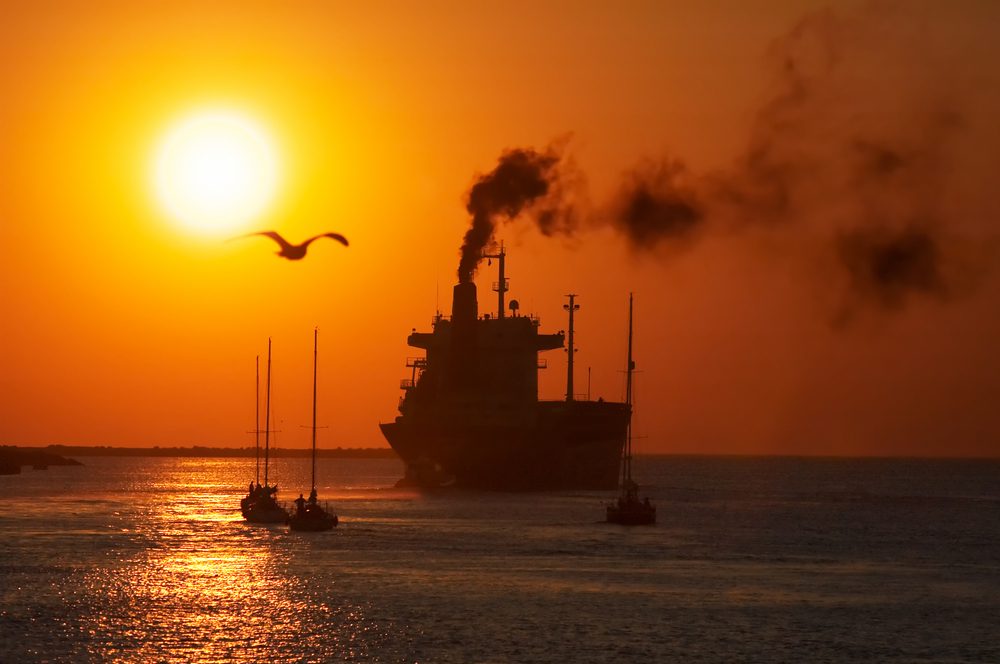By Enes Tunagur, Kate Abnett and Jonathan Saul
LONDON, April 11 (Reuters) – Countries at the U.N. shipping agency struck a deal on Friday on a global fuel emissions standard for the maritime sector, which will impose an emissions fee on ships that breach it and reward vessels burning cleaner fuels.
The U.S. pulled out of the climate talks at the International Maritime Organization in London this week, urging other countries to do the same and threatening to impose “reciprocal measures” against any fees charged to U.S. ships.
Despite that, other nations approved the CO2-cutting measures to help meet the IMO’s target to cut net emissions from international shipping by 20% by 2030 and eliminate them by 2050.
A majority of countries at the IMO voted on Friday to approve a scheme that from 2028 will charge ships a penalty of $380 per metric ton on every extra ton of CO2 equivalent they emit above a fixed emissions threshold, plus a penalty of $100 a ton on emissions above a stricter emissions limit.
The talks exposed deep rifts between governments over how fast to push the maritime sector to cut its environmental impact.
A proposal for a stronger carbon levy on all shipping emissions, backed by climate-vulnerable Pacific countries – which abstained in Friday’s vote – plus the European Union and Britain, was dropped after opposition from several countries, including China, Brazil and Saudi Arabia, delegates told Reuters.
Vanuatu’s climate minister Ralph Regenvanu said countries had “failed to support a set of measures that would have gotten the shipping industry onto a 1.5°C pathway.”
The deal is expected to generate up to $40 billion in fees from 2030, some of which will go towards making expensive zero-emission fuels more affordable.
Industry group the International Chamber of Shipping welcomed the deal, which it said would require a huge scale-up of such fuels.
“We are pleased that governments have understood the need to catalyze and support investment in zero emission fuels,” ICS said in a statement.
In 2030, the main emissions limit will require ships to cut the emissions intensity of their fuel by 8% compared with a 2008 baseline while the stricter standard will demand a 21% reduction.
By 2035, the main standard will cut fuel emissions by 30%, versus 43% for the stricter standard.
Ships that reduce emissions to below the stricter limit will be rewarded with credits that they can sell to non-compliant vessels.
Countries still need to give final approval to the measure at an IMO meeting in October.
(Reporting by Enes Tunagur in LondonKate Abnett in BrusselsEditing by Frances Kerry and Jane Merriman)
(c) Copyright Thomson Reuters 2025.
Editorial Standards · Corrections · About gCaptain
This article contains reporting from Reuters, published under license.

 Join The Club
Join The Club












